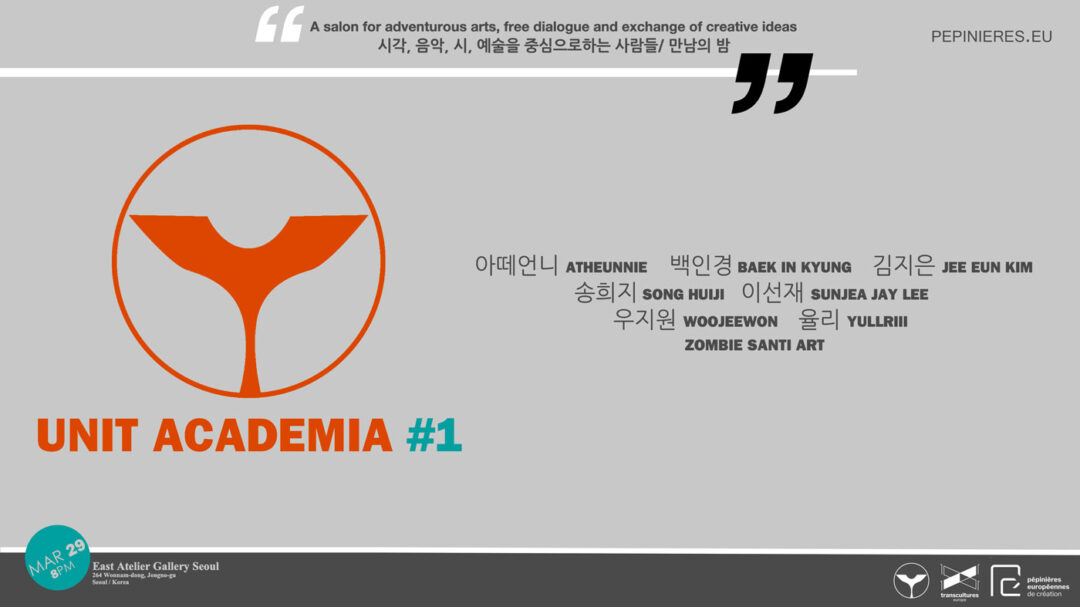Transcultures Europe and the European Pepinieres of Creation are pleased to be associated with the UNIT ACADEMIA initiative, a new series of multidisciplinary events and presentations initiated in Seoul by Rafael (a Belgian visual and multimedia artist, also organizer of the ALEA and De Noize experimental arts festivals) together with organizer Karl Yoon.
Yullriii (choreographic performance)
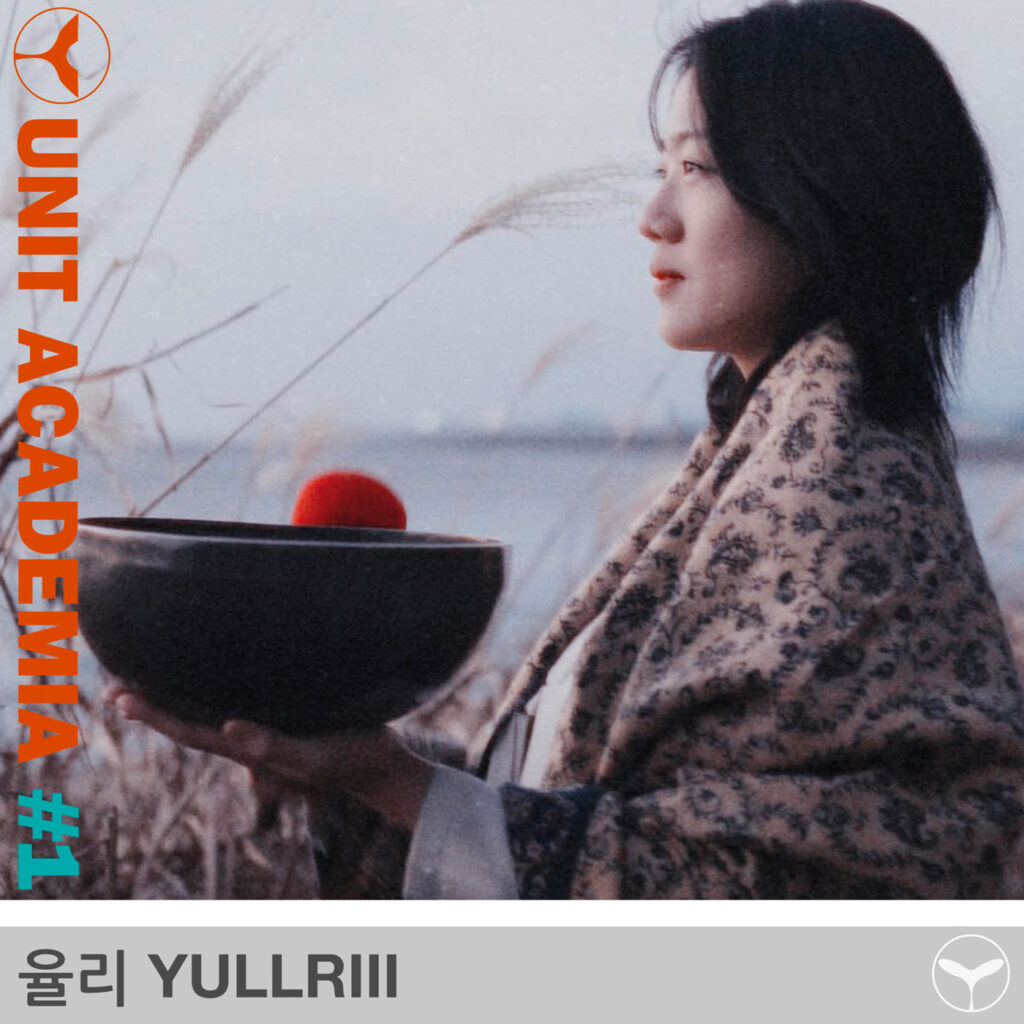 Yullriii is a Korean dancer and representative of a cultural arts organization.
Yullriii is a Korean dancer and representative of a cultural arts organization.
She provides education to communicate with people through breathing, meditation, dance, and healing through art.
Through the most primitive artistic movement, she completely let go of herself, faced her pure soul, and focused inward..
Woo Jee Won (live concert)
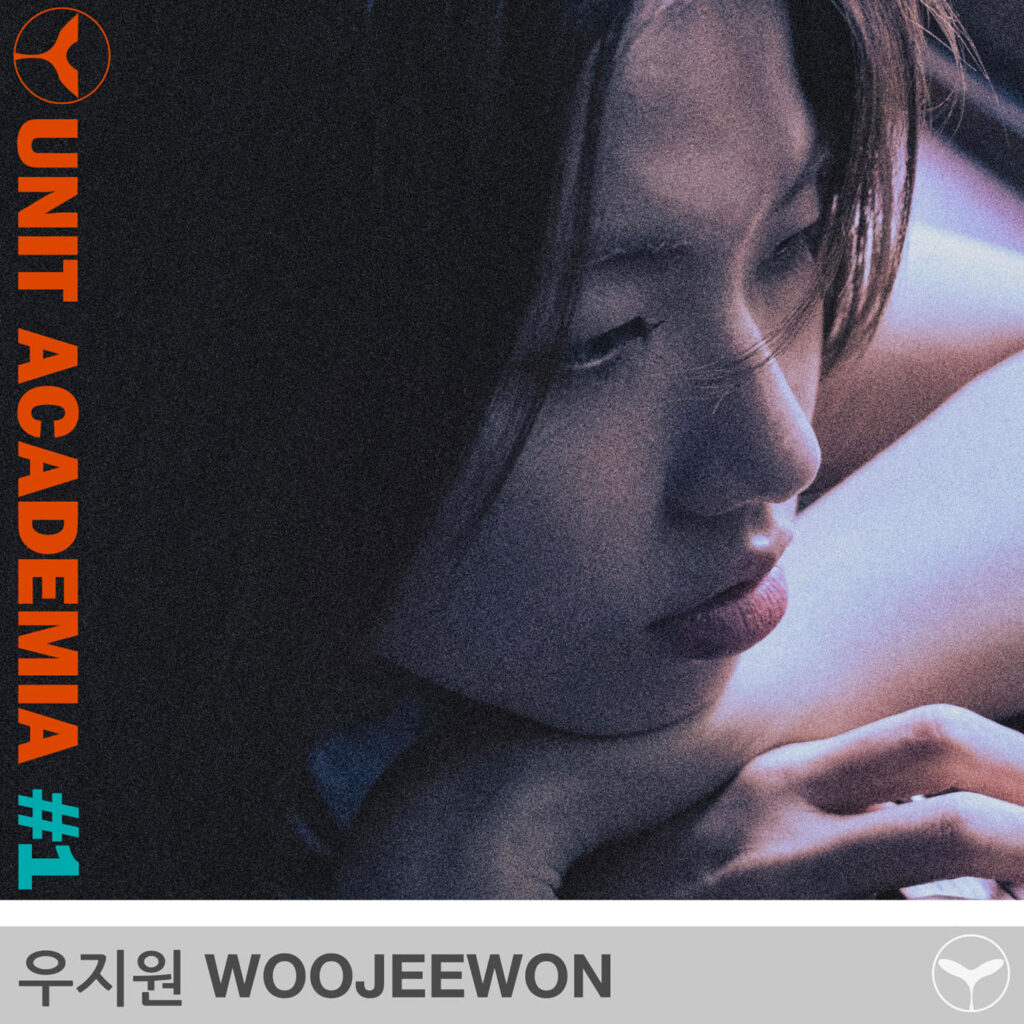 Woo Jee Won is a South Korean singer-songwriter who plays subtle ambient folk music.
Woo Jee Won is a South Korean singer-songwriter who plays subtle ambient folk music.
She mixes analog instruments with natural sounds.
She is loved for her unique sad and explosive voice.
In her new album ‘Homeground’, she sings about the beauty that eternal value lies within the body.
Atheunnie (live concert)
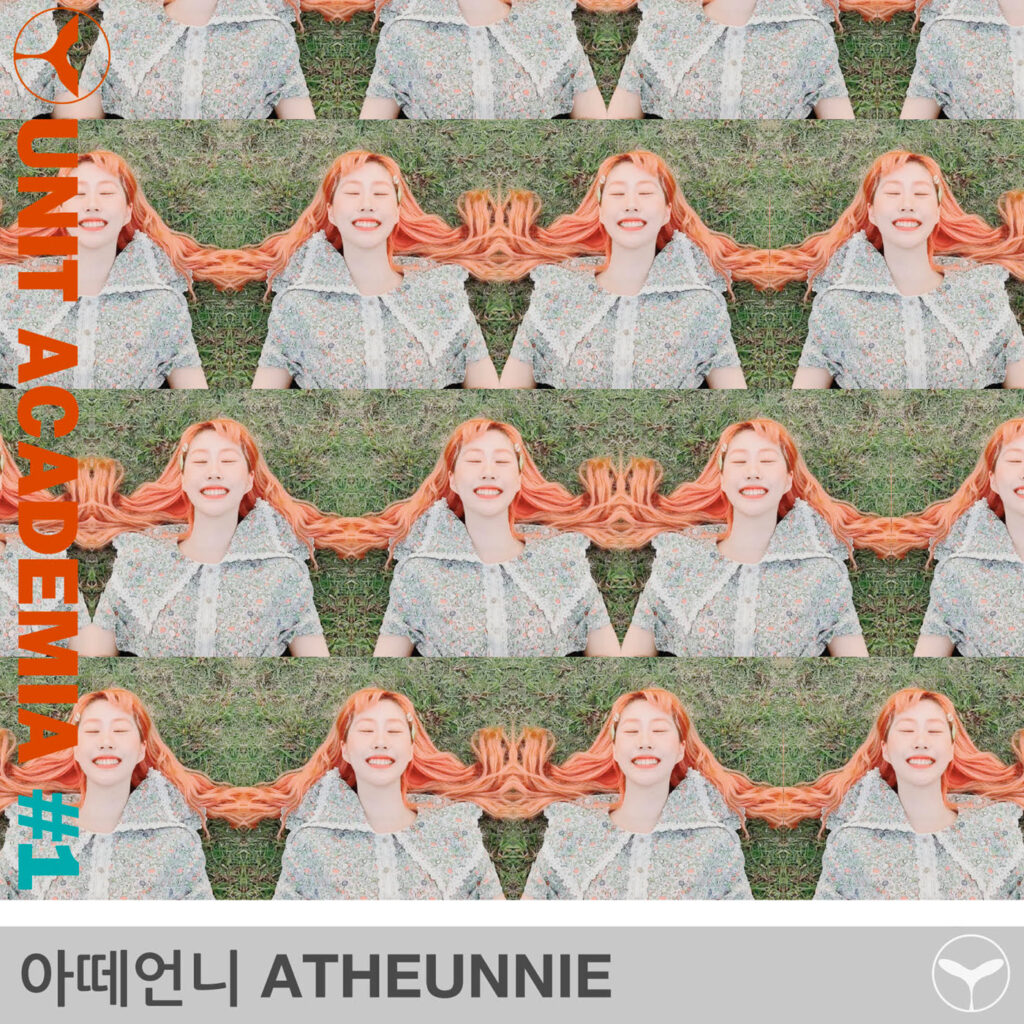 Atheunnie is a Korean singer and composer who sings very personal songs about emptiness and lonesomeness in an expensive and fulfilled world…
Atheunnie is a Korean singer and composer who sings very personal songs about emptiness and lonesomeness in an expensive and fulfilled world…
“I sing about poverty in a world of abundance. May my poverty be your comfort“
Sunjea Jay Lee (talk)
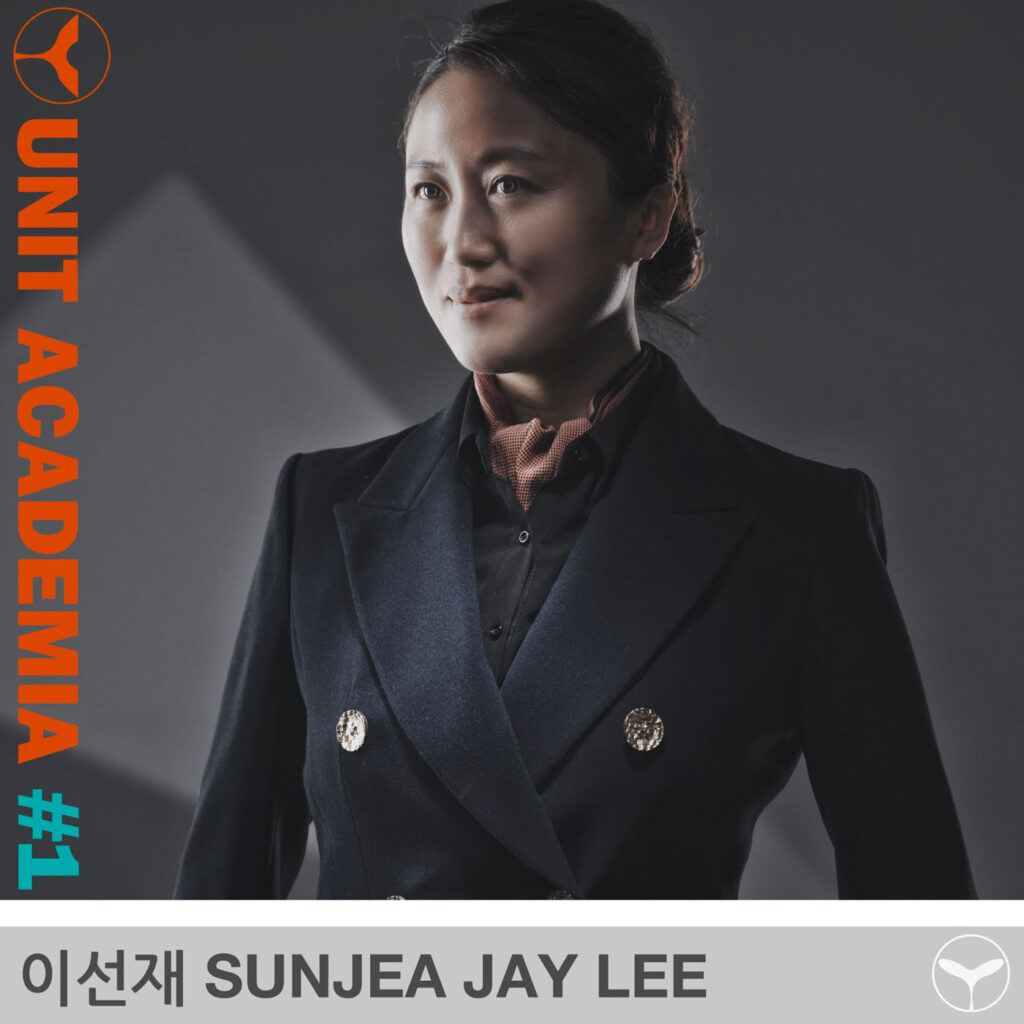 Sunjea Jay Lee is a director, curator, and producer based in Seoul, Jeju, and Europe.
Sunjea Jay Lee is a director, curator, and producer based in Seoul, Jeju, and Europe.
She works with artists of various genres both domestically and internationally.
Based on themes that straddle the traditional and contemporary, she organizes performances, exhibitions and art events around the world, crossing genres without boundaries.
Jee Eun Kim (talk)
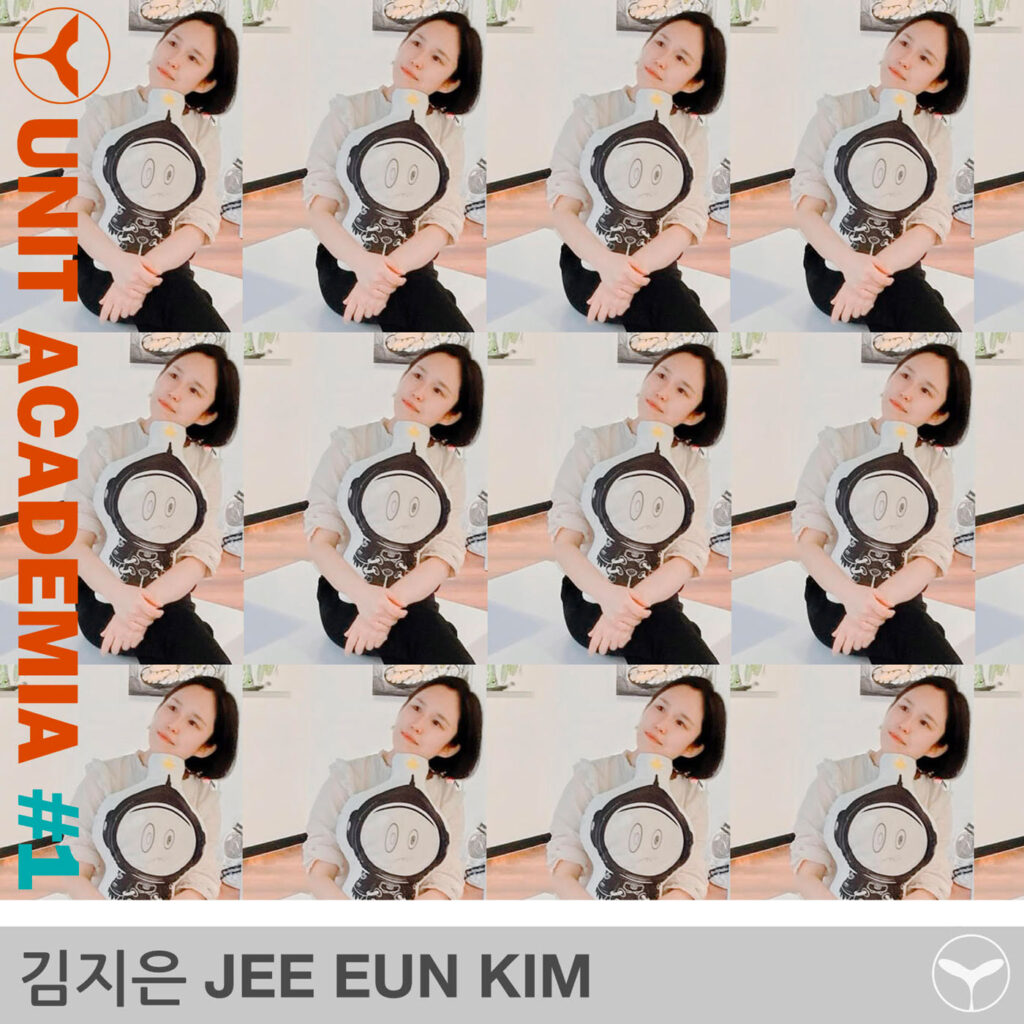 Jee Eun Kim owns the East Atelier, a gallery located in the center of Seoul, where the first edition of Unit Academia will take place.
Jee Eun Kim owns the East Atelier, a gallery located in the center of Seoul, where the first edition of Unit Academia will take place.
Her goal is to focus mainly on young emerging Korean artists that she wants to help develop in both local and international art scene.
She recently opened CAAS (Central Artist Agency Seoul), an artist agency, an alternative from the old gallery culture system.
There, anyone who is passionate about art can introduce their work and receive advices to develop their artistic activities.
Baek in Kyung (live poetry)
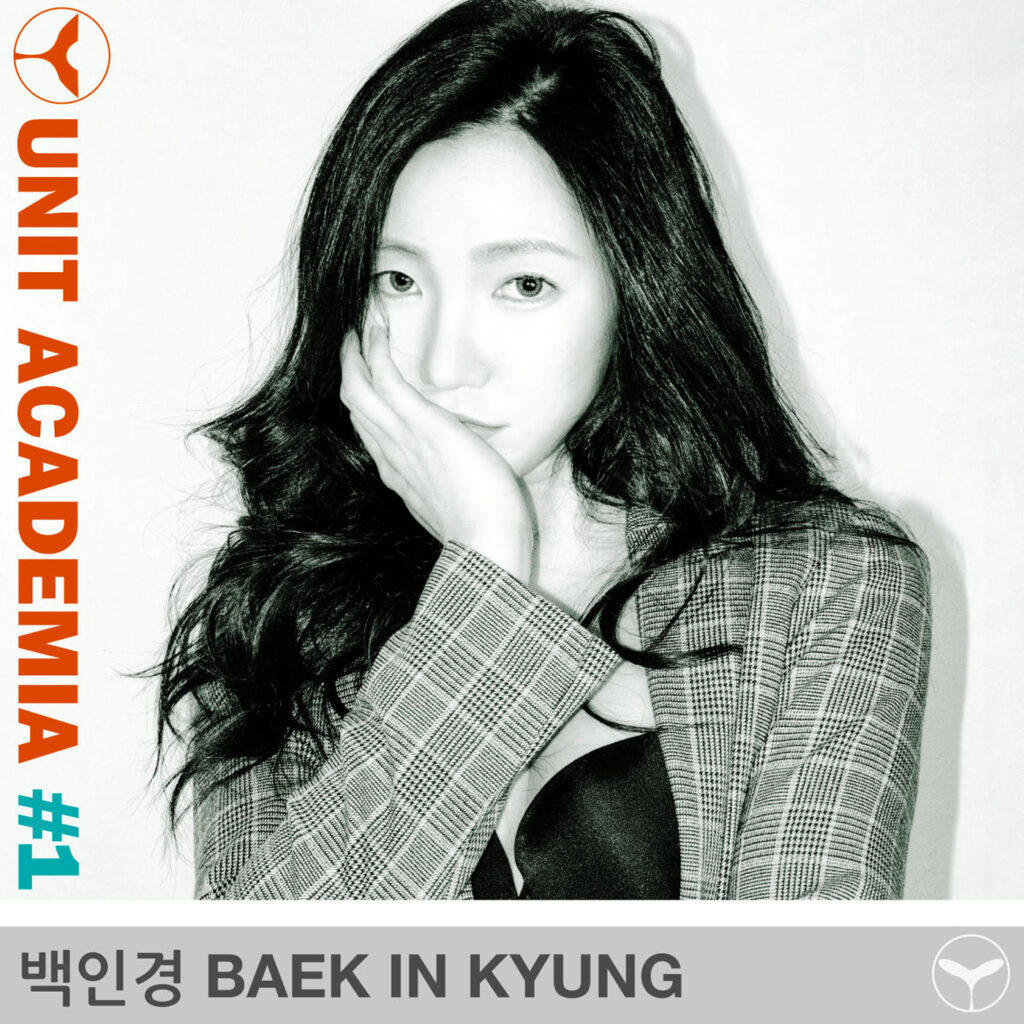 In 2018, she published a poetry collection called ‘Call me when you come to Seoul’. A free worker, dreaming of ‘income from writing’.
In 2018, she published a poetry collection called ‘Call me when you come to Seoul’. A free worker, dreaming of ‘income from writing’.
“ When my palm lines cracked, my palm itched. There is nothing sharp here, so we need a ballpoint pen.
I wanted to write our names on each other’s palms.
My sister clenched her fist first, as if she didn’t want to remember anything.
They said this was a fighting stance.
It rained yesterday. The stronger my fist became, the sharper the raindrops became.
The radio frequency wavered dangerously. When tomorrow’s weather became confused.
My sister became round like a hump. The first lie we learned. Let’s meet again next time.”
Song Huiji (live poetry)
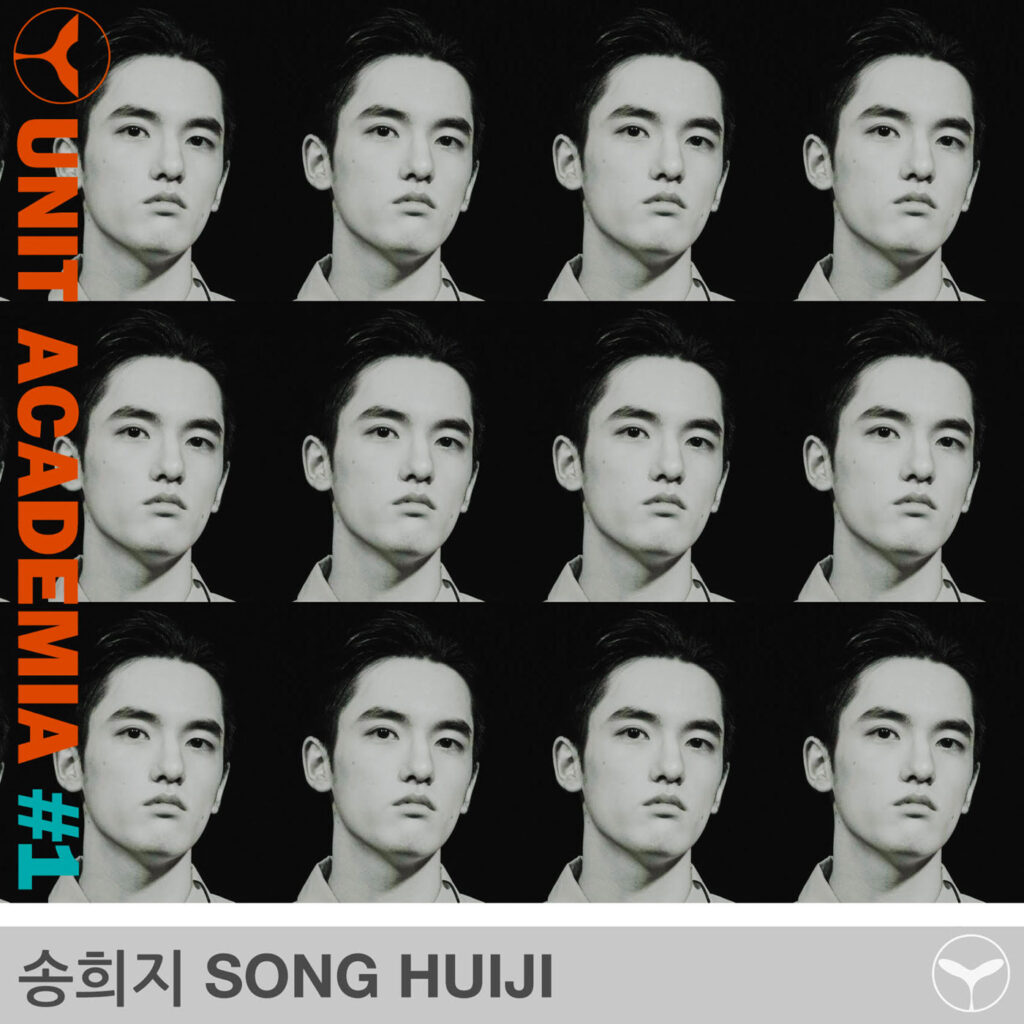 He has been writing and publishing poetry since 2019. His new poetry book “Synchronized Swimming” is out now.
He has been writing and publishing poetry since 2019. His new poetry book “Synchronized Swimming” is out now.
“One class.
I had to make a statement about myself.In front, countless round flames.
falling from the ceiling
The attitude of light
Easily turning me into a villain.Jump up and down
Like a lively lamb’s horntransparent and huge
my feetThere is no
Having too muchStatements are dangerous.
To say,
It doesn’t come back.”
Interview with Rafael (Be), visual artist and co-founder of Unit Academi
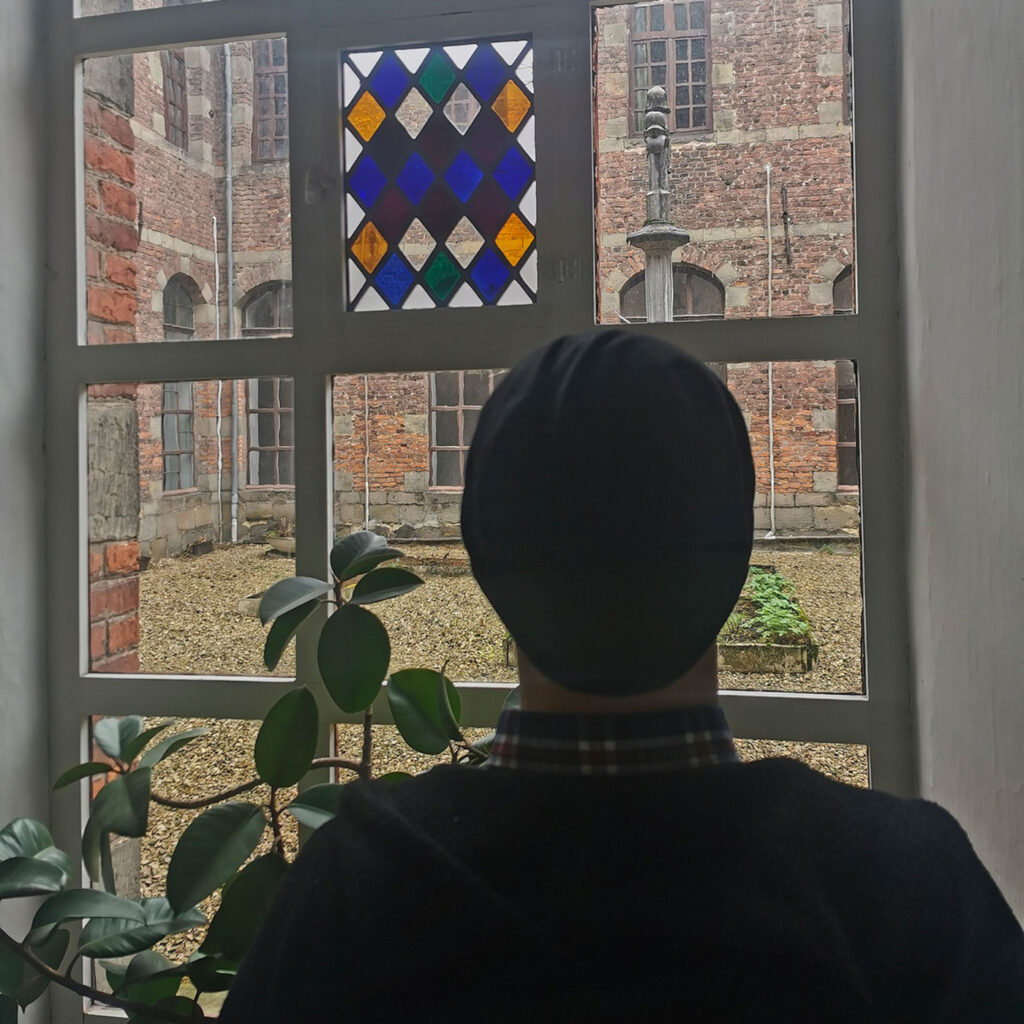 During his residency at Transcultures – Belgium in March 2023, Rafael, Belgian artist based in the Republic of Korea for over 10 years and working between South Korea and Belgium answers questions from Philippe Franck (director of Transcultures Europe/ European Pepinieres of Creation) regarding various groundbreaking events dedicated to experimental arts that he recently initiated in Seoul, which serve as genuine platforms for visibility and encounters for the alternative artistic scene in Korea and also open up internationally (France, Belgium, Japan…).
During his residency at Transcultures – Belgium in March 2023, Rafael, Belgian artist based in the Republic of Korea for over 10 years and working between South Korea and Belgium answers questions from Philippe Franck (director of Transcultures Europe/ European Pepinieres of Creation) regarding various groundbreaking events dedicated to experimental arts that he recently initiated in Seoul, which serve as genuine platforms for visibility and encounters for the alternative artistic scene in Korea and also open up internationally (France, Belgium, Japan…).
Philippe Franck : With the collaboration of a few “artivist” friends from Korea, you launched the Alea and Denoize festivals (dedicated to experimental music) in Seoul last year. What motivated this new initiative called ‘Unit Academia’?
Rafael : I’ve always liked the idea of the “salon”; I think back to the time of Gertrude Stein in Paris during the Roaring Twenties, where she hosted her friend Picasso, Hemingway, and the young artists of that glorious era.
Meetings and discussions between different players in the artistic field were then organized in an apartment (often on Sundays). It was a meeting where you could also acquire new knowledge and see works that had just been created, long before they became public. A hundred years later, we sometimes forget how much these salons shaped the history of Art, first by fostering encounters.
On my humble scale, I’ve always dreamed of reactivating this emulation. The Alea event (dedicated to hybrid arts in great aesthetic and experimental freedom) that I initiated in 2023, in Seoul, is part of this project. But Alea, almost a victim of its success, has become a full-fledged event, closer to a festival than a salon.
Therefore, with my friend Karl Yoon, who is a young concert and event promoter, we joined forces to modestly recreate this idea of a “salon”. So I am the co-organizer of Unit Academia with Karl, who produces this event through his company Zero Division, of which I am the artistic director.
Also encouraged by the fact that we have a nice gallery at our disposal, right in the center of Seoul, we thought it was the right time and place to launch this initiative on a monthly basis.
Unit Academia is therefore a new project bringing together artists, researchers, curators, and thinkers. Its purpose is to be a meeting place for exchanges between dynamic actors from the Korean and international artistic scene.
This event will include conferences, performances, screenings, concerts, installations, and other contemporary forms. Its regularity seems to me also an important element for it to be able to bring together a great diversity of protagonists and participants.
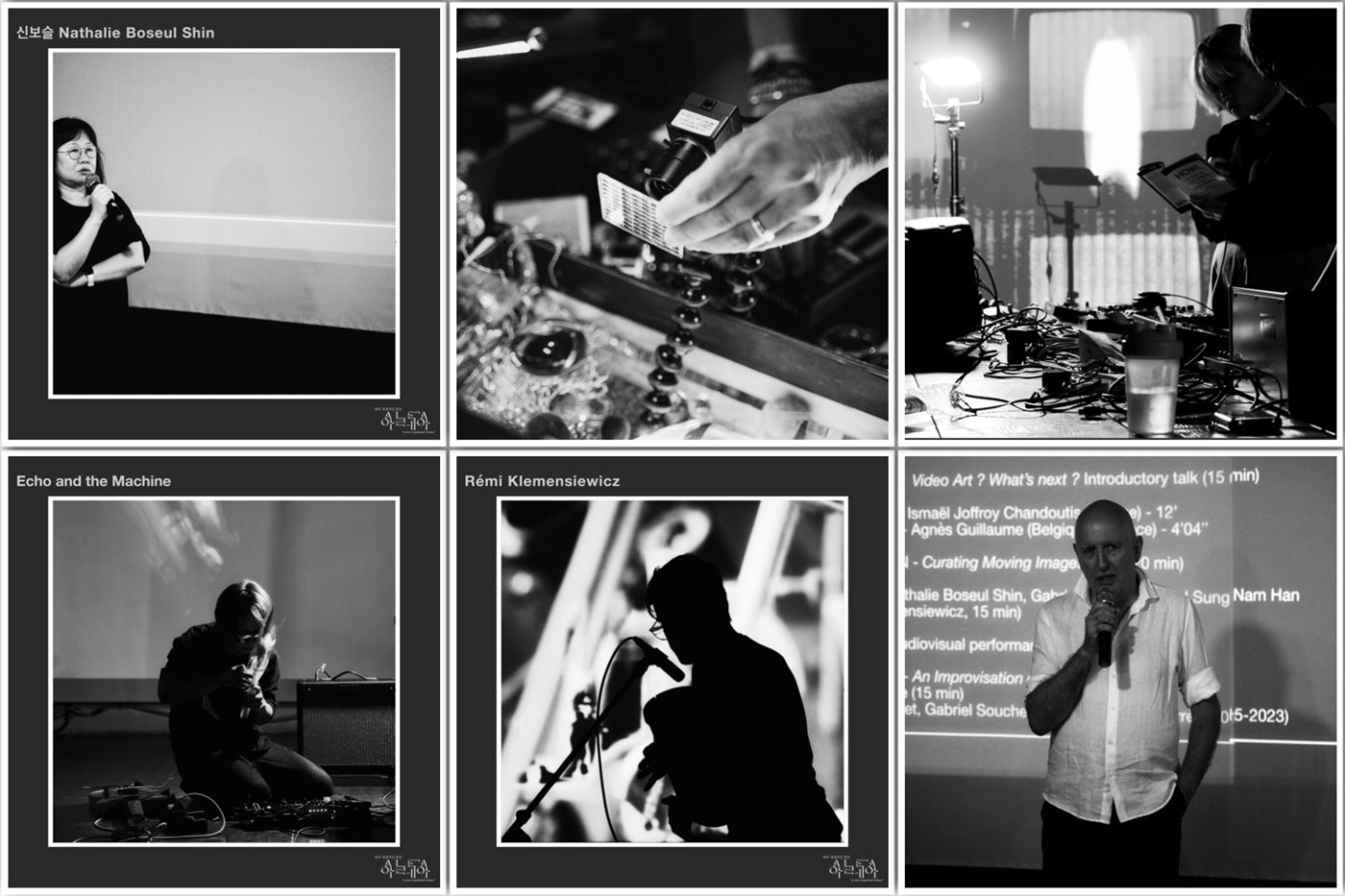
ALEA
PF : What are the objectives of the Unit Academia series?
R : The objectives are multiple. First of all, it is about reflecting the dynamism of the artistic scene in South Korea, and the interest that Korean art arouses abroad, Seoul being today the artistic hub of Asia, and from my point of view, of the world. There is also prospecting and therefore discoveries.
Unit Academia is a place where one can see and debate new trends, and also discover new artists, as Unit Academia is very open to new talents, in all genres and media, for a very diverse and curious audience.
Not long ago, I organized the Denoize festival (which is a visibility platform for young experimenters) with Karl Yoon, and this experience made us discover many new talents, no less than 38 participants answered the call. We intend to go in this pioneering direction with Unit Academia, but with a broader spectrum, the idea being primarily to create chance encounters, fruitful emulsions.
In a way, it is a more social initiative that will work to give the opportunity to see and hear creations that are often inaccessible to non-academics, or remain confined in a form of elitism that often intimidates the majority of the public. Unit Academia is truly open to everyone, without bling or snobbery.
Unit Academia is the satellite – with its autonomy as well – of Alea, a talent scout on a monthly basis that will complement the annual festival that is Alea.
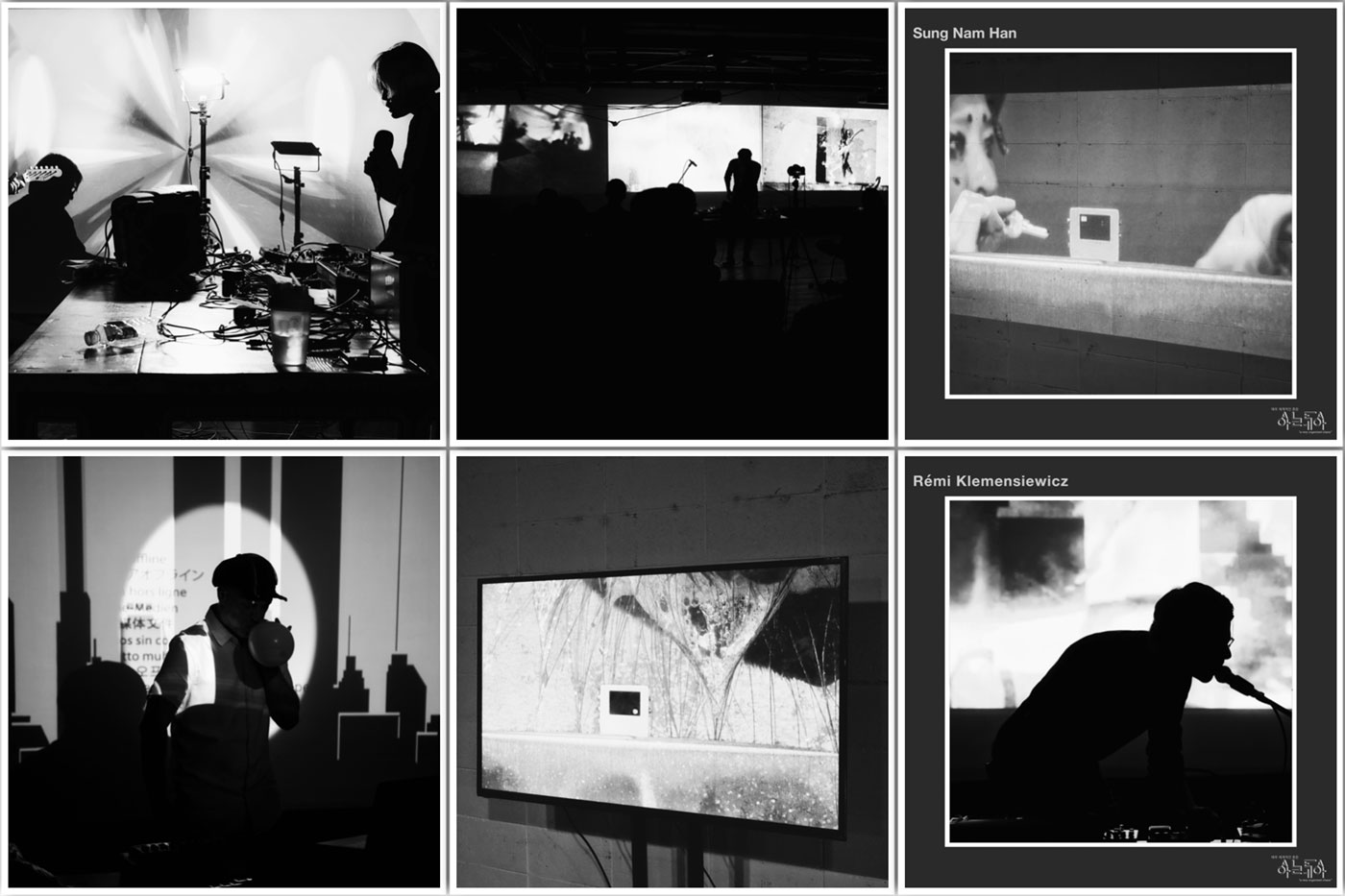
PF : How would you describe the experimental scene (sound, visual, inter or multimedia) in Seoul and more broadly in South Korea today? What are its peculiarities? What are the venues that support it and give it a certain visibility?
R : In fact, I have been strongly interested in the Korean experimental scene since 2002. I even organized an event at Recyclart (Brussels) around 2003 or 2004 with many Korean artists. Apparently, I was the first in Europe to have presented artists from ““Balloon and Needle”, the first Korean experimental music label.
This scene is a reflection of Korea; the music scene was once repressed and even forbidden with the wars and the Japanese occupation (between 1910 and 1945), just like the economy, which suddenly boomed with the invasion of K-pop (whose first generation dates back to the early 90s) is a powerful instrument.
It should not be forgotten that South Korea is the size of Switzerland, with a population almost three times smaller than Japan, 30 times smaller than China’s… And yet, it is incredibly strong and dynamic, like its people.
South Korea is the most mountainous country in the world. 70% of its territory is composed of mountains that cross the country in two major chains. And often, I tell myself that the temperament of the inhabitants and the history of this fascinating country is like this: either high or low, but never flat. Koreans are hungry for art and experimentation, and it’s beautiful to see, especially as a creator and organizer. The audience is there.
I was struck by a comment from a curator and agent for contemporary non-musical artists who did not know this music scene, and who asked me: “why do all these people, so numerous and young, look so fascinated by this weird and “boring” music?”. Something is happening here, perhaps like what we experienced before in Belgium or Western Europe in the early 80s. Of course, there are very local specificities but, originally, the codes come from us in the West, and also from Japan. We had noise with Merzbow, etc… or more European stylistic research. Now they have freed themselves from this, or rather they have used it as a springboard for other explorations elsewhere.
Today, a multitude of young artists use sound art as a brush, to paint very personal portraits. There is also sometimes here a form of irony, a controlled shift, which I rarely find elsewhere (except among the Belgians, precisely), and which makes the works and performances even stronger and, I would say, “intelligent”.
What I particularly like is this subtle sophistication that characterizes the Koreans and that I no longer find elsewhere… everything becomes so conventional… This appetite for mystery and research is starting to be known elsewhere but in my opinion, not yet enough. In terms of cultural venue, I think of this legendary place, very small, very salon-like called “Dotolim”.
This was the very first place where you could come and see artists like Otomo Yoshihide or other important sound experimenters, and this since the early 2000s. Next to Dotolim, in the trendy and picturesque neighborhood of Sangsu-dong to the east of this metropolis of 22 million inhabitants, is Thila, a new cultural space for ambitious sound and digital arts, which is becoming very important. Musician Gazaebal and manager Nine behind this project, will host the next edition of the Alea festival and they also organize the WeSA festival dedicated to sound (its theme is “sound is the new music”) and multimedia arts, whose artistic curator for the next edition in January 2025 will be Gabriel Soucheyre, the director of the hybrid arts Videoformes festival in Clermont-Ferrand (Fr) with whom I also collaborate.
It should also be noted that contemporary art museums in South Korea are very open to experimental music; this scene is very much alive there too. Perhaps the imprint of the father of video art Nam Jun Paik has something to do with it… Also, the line between the visual and the audio and pure physical performance is increasingly blurred… An artist as important as Geumhyung Jeong has just performed a sound performance at Dotolim, and I believe it will be a landmark event. The bridges are there. Lately, the label Helicopter Records led by Park Daham, an experimental musician (with whom I have already shared the bill at Platform L Museum), is very active.
I closely follow artists like Joyul supported by Helicopter Records or Heejin Jang who released an album – “Me and the Glassbirds” – considered one of the very best experimental albums of 2023, internationally. I discovered these two remarkable sound creators by organizing, with my friends, the Denoize festival.
It should also be remembered that there was an interesting psychedelic scene, from the late 60s. I was very surprised by the richness of this forgotten scene, rediscovered recently, precisely by the new Korean generations.
The Republic of Korea is recent (1948) but it is also a very ancient culture. The experimental scene here reflects this double and cyclical aspect well. I like to attend local shamanic ceremonies (a strong experience), and I feel like I am plunged both into the origins of humanity and into the future. I sometimes feel this ceremonial aspect also in certain particularly intense experimental concerts. Buddhist thought takes on its full meaning here: nothing is old, therefore nothing is new.
Philippe Franck
Transcultures – Hautrage Convent 2023
Infos
- 29.03.2024
- East Atelier Gallery
- 264 Wonnam-dong, Jongno-Gu, Séoul, République de Corée
- Free entrance
Production
- Zero Division, Unit Academia, European Pepinieres of Creation
- In partnership with East Atelier Gallery

